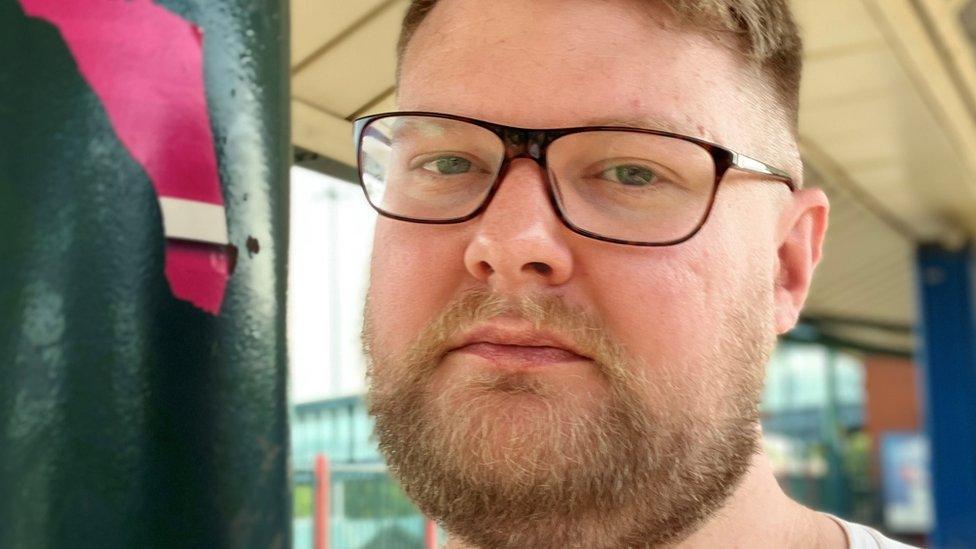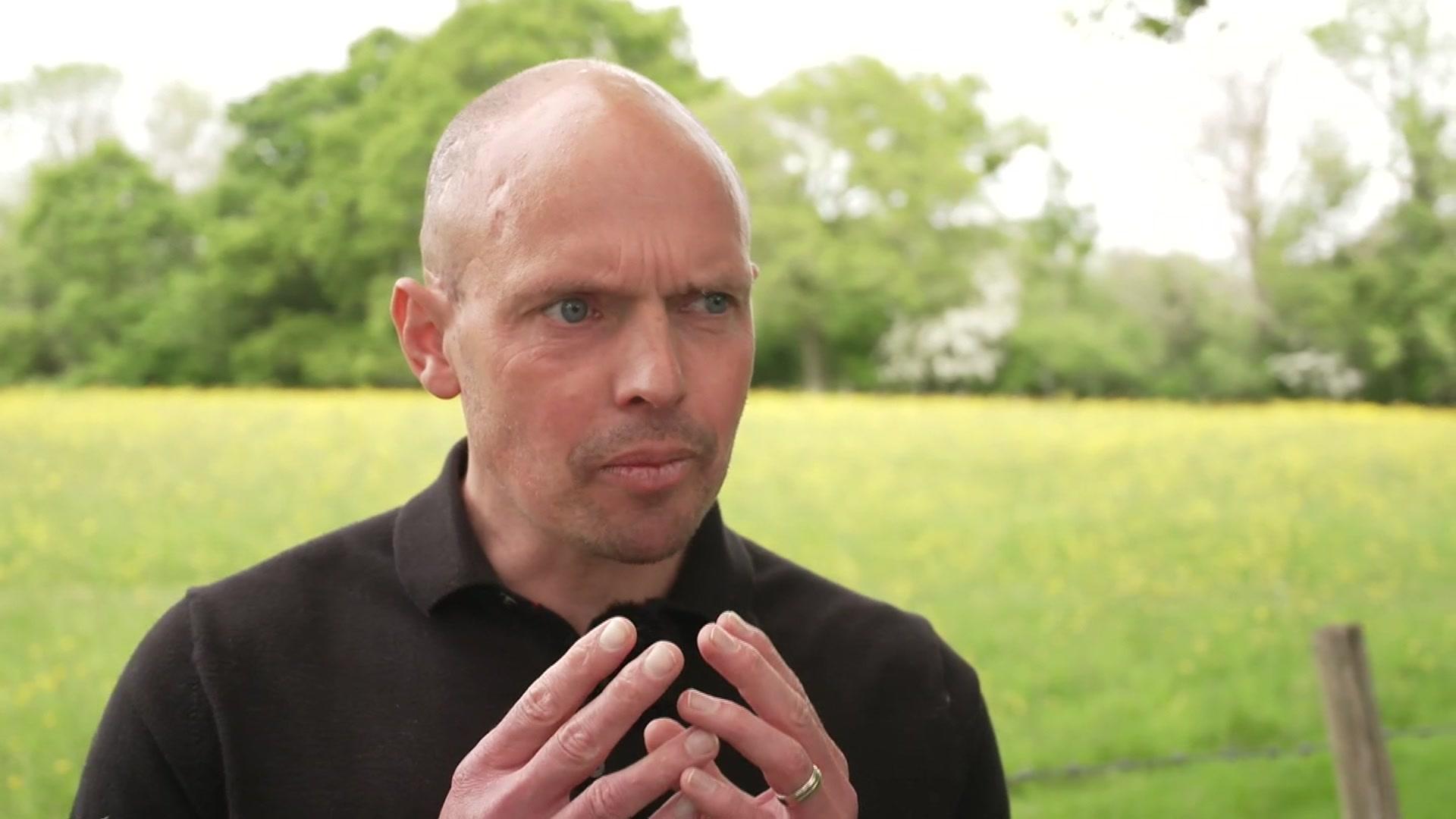Epileptic passenger thrown off bus during seizure in Sheffield
- Published

Even Allen says the driver mistook an epileptic seizure as a sign of drunkenness during the journey in Sheffield
A passenger with epilepsy was thrown off a bus in South Yorkshire while having a seizure after the driver mistakenly thought they were drunk.
Even Allen said the driver mistook their slurred words and unsteadiness for signs of alcohol or drug use during a journey in Sheffield in 2021.
The Epilepsy Action charity has launched a campaign to tell people how to respond to those having seizures.
"It was incredibly traumatic for me," said the 35-year-old from Rotherham.
The charity recently surveyed more than 200 people with epilepsy and found more than half had avoided public places due to the fear of having a seizure and experiencing stigma or misunderstanding.
It found 47% of respondents had been mistakenly accused of being drunk or on drugs in public.
"I didn't have any means of communicating that I needed help," Even told BBC Radio Sheffield.
"They tend to manifest themselves a little bit like you're daydreaming, you remain conscious but if someone were trying to raise my attention I wouldn't be able to answer back."
'Comfort, Action, Reassure, Emergency'
Epilepsy Action has created an acronym called CARE - Comfort, Action, Reassure, Emergency - to help members of the public learn how to help.
Even, who was diagnosed as having epilepsy in 2017, said: "The bus driver physically manhandled me off the bus and left me at a bus stop, which was incredibly traumatic for me.
"Were this campaign around at the time, somebody on the bus may have had the confidence to come to my aid rather than judge me or made feel I was a burden."
Epilepsy, which affects around 630,000 people in the UK, is a condition affecting the brain, causing repeated seizures.
A seizure happens when there is a sudden burst of intense electrical activity in the brain, which disrupts the way the brain normally works.
"Having that person who can extend a hand and say 'you're going to be OK' is vital to people in this vulnerable condition," Even added.

What to do if someone has a seizure
C - Comfort - Cushion their head with something soft, to protect them from injury and keep them comfortable
A - Action - Start to time the seizure, and clear the area of anything that might be harmful. You could also check if the person has a medical ID or bracelet with more information on how to help
R - Reassure - When the seizure has stopped, place them in the recovery position, stay with them and reassure them as they come round
E - Emergency
Call 999 if:
The seizure continues for more than five minutes
The person is not regaining consciousness
The person goes straight into another seizure
The person has trouble breathing after the seizure
The person has never had a seizure before
Source: Epilepsy Action

Follow BBC Yorkshire on Facebook, external, Twitter, external and Instagram, external. Send your story ideas to yorkslincs.news@bbc.co.uk, external.
- Published24 May 2023
